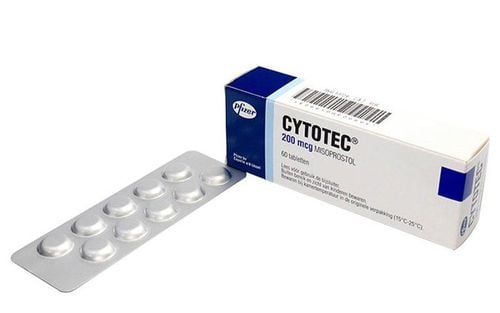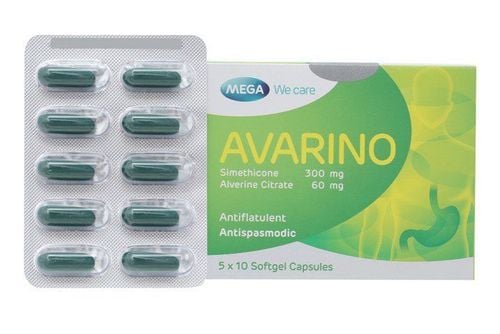This is an automatically translated article.
The article was professionally consulted by MSc Vu Van Quan - Department of General Surgery & Anesthesia - Vinmec Hai Phong International General Hospital.Gastric prolapse is a chronic disease that occurs when the position of the stomach is prolapsed, causing bloating, epigastric pain, affecting digestion. Even gastric prolapse can cause many dangerous complications if not diagnosed and treated promptly.
1. What is gastric prolapse?
Gastric prolapse is a condition of displacement of the viscera in general, of the stomach in particular and is quite rare. In a patient with gastric prolapse, the top of the stomach remains in the normal position but its base is lower than usual.
2. Symptoms of stomach prolapse
Patients with gastric prolapse often have some of the following specific symptoms:
After eating, the stomach feels uncomfortable, full of stomach, feels like the stomach drops, is stretched or feels like something is pressing on the stomach. thick. There is usually a sound of water in the stomach, but when you lie on your back, you will not hear the sound of water. Or belching, bad smell in the mouth. Poor diet, poor body nutrition. The face is gray, the mouth is bitter, the tongue is dry, the spirit is not excited, easily tired and afraid of the cold. Irregular bowel movements, sometimes constipation, sometimes diarrhea. Headache, insomnia.

3. Causes of stomach prolapse
Stomach prolapse is usually not a disease but it is a symptom caused by many different diseases, common in people with peptic ulcer disease, obesity due to sedentary, women after many childbirths ,... Specific causes of gastric prolapse are:
Gastric ulcer, duodenal ulcer causing pyloric stenosis Eating disorderly: eating too full, exercising too vigorously after eating or having a history Stomach pain will make the stomach tone, reduce the function of the stomach, causing gastric prolapse.
4. How to prevent and treat gastric prolapse
4.1 Adjust diet and activities Eat in moderation, avoid doing heavy work right after eating. Limit eating cold, sour, spicy, greasy foods that cause bloating and indigestion. Chew thoroughly when eating to make the stomach contract and digest easier. Moderate exercise and exercise. Get enough sleep.

4.2 Perform some exercises to prevent and treat diseases The following abdominal exercises are considered to be effective in preventing and treating stomach prolapse:
Legs bent, heels close buttock, stretch and prop your legs up, make the half of the body lift, perform 4 - 8 times, each time maintain for about 1-2 minutes. In the supine position, or the patient's hands are behind the neck, use abdominal muscles to sit up and then lie down, repeat 4 to 8 times. Lie on your back, straighten your legs and arms, use your abdominal muscles to slowly raise your legs up, make your upper body into a 90o angle, maintain for about 2 minutes and then put your feet down. This pose is performed 4 to 8 times. When diagnosed with gastric prolapse, the patient should follow the doctor's advice in adjusting the diet, living and exercising to reverse this disease.
To accurately determine the health status, patients with one of the above signs should see a doctor. Vinmec International General Hospital with comprehensive expertise, services and facilities will help patients have a safe and comfortable experience when visiting Vinmec.
Master. Doctor. Vu Van Quan has more than 10 years of experience working in the field of General Gastroenterology, specializing in examining and treating surgical pathologies of the gastrointestinal tract, liver, bile, pancreas and diseases of the abdominal peritoneum and abdominal wall.
Please dial HOTLINE for more information or register for an appointment HERE. Download MyVinmec app to make appointments faster and to manage your bookings easily.














